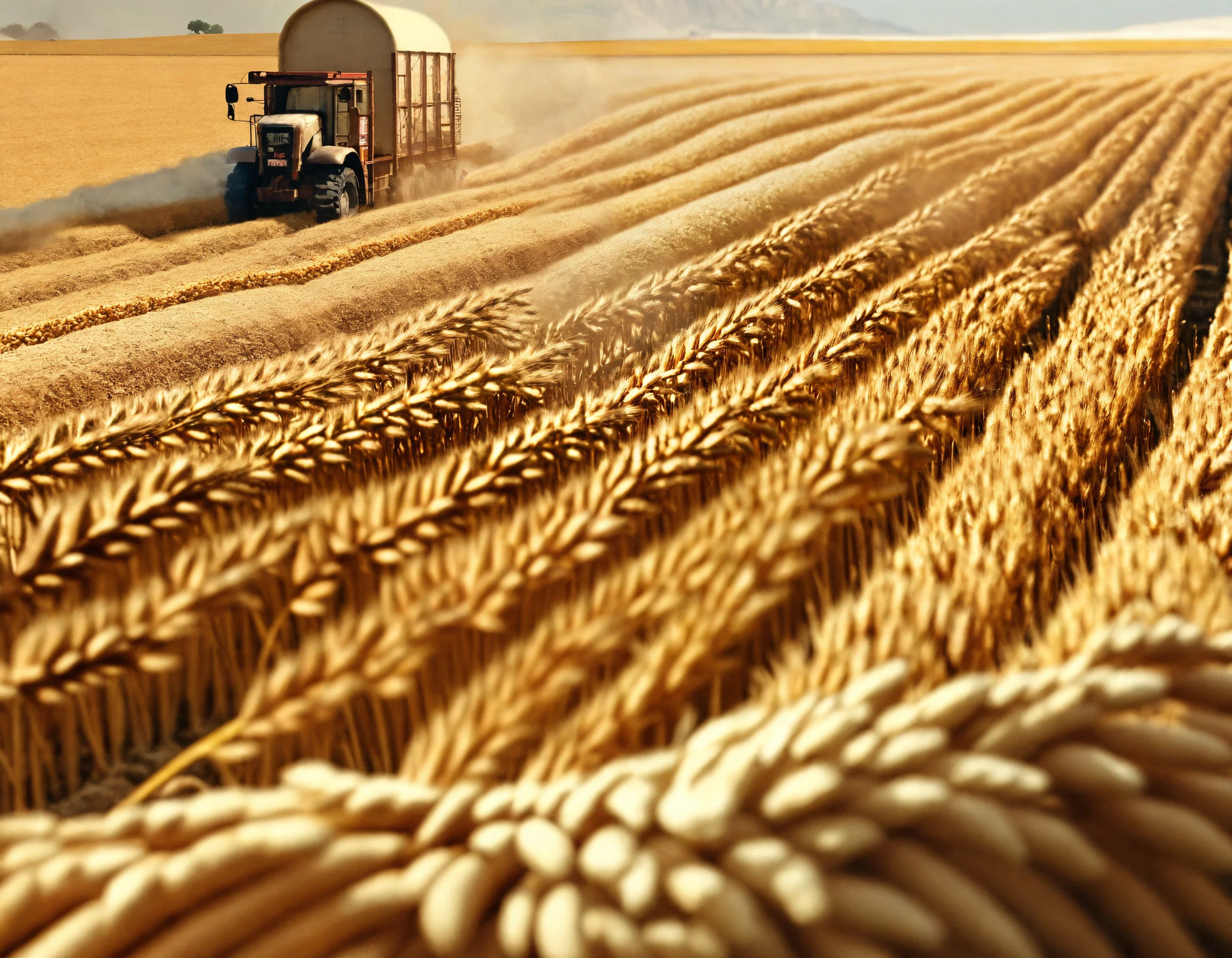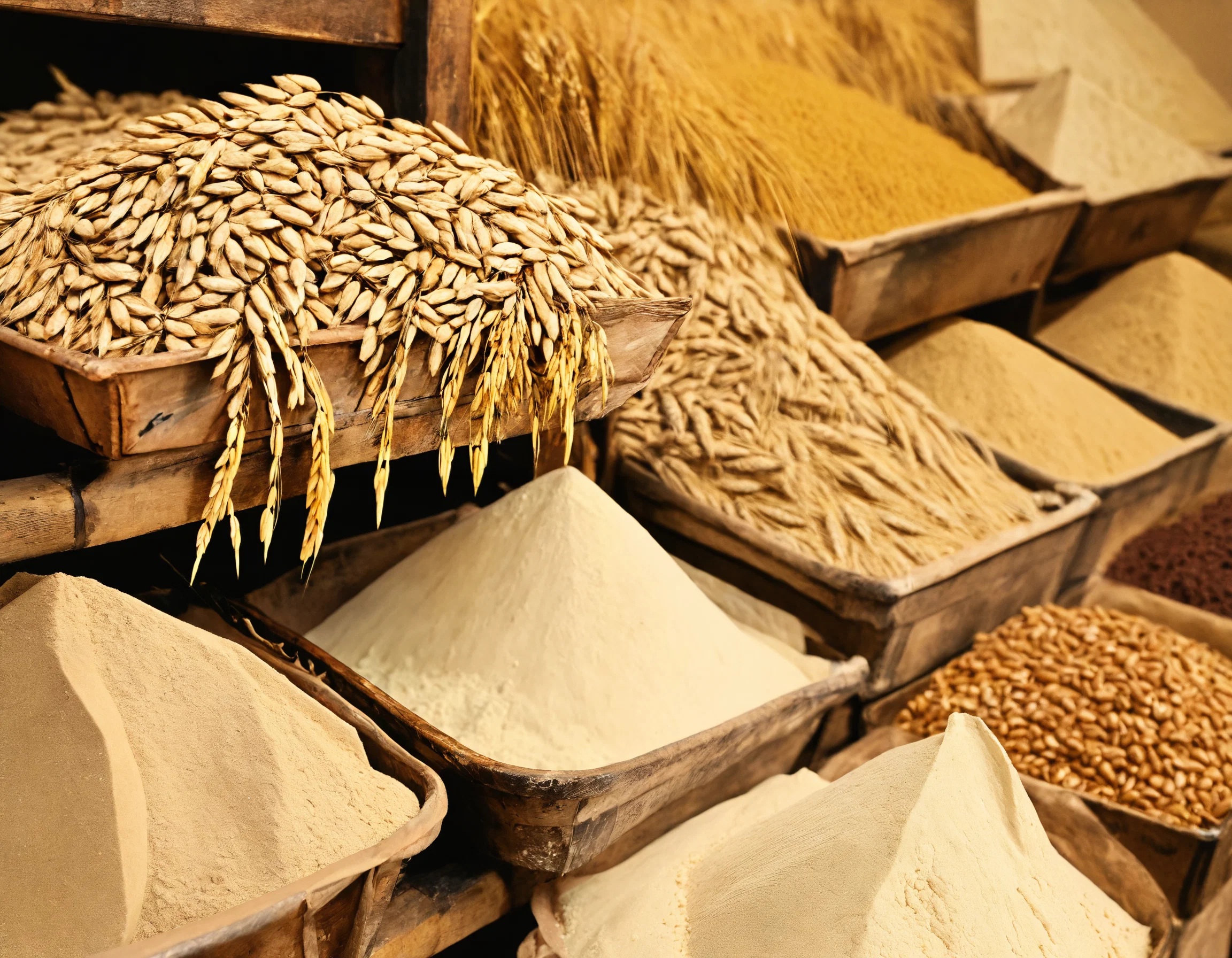The Flour Supply Chain in Turkey
Turkey's flour industry stands as a vital pillar in both the national economy and global food markets. As the world's largest flour exporter, Turkey's flour supply chain—spanning wheat production, milling, and distribution—plays an essential role in meeting the high demand both domestically and internationally. This intricate supply chain encounters challenges, including fluctuating wheat yields due to climate change and logistical complexities. However, these challenges also present opportunities for growth through innovation, sustainability initiatives, and strategic management.
Wheat Supply Process
The wheat supply process is the starting point of Turkey’s flour industry, ensuring that quality wheat is available for milling. This section explores how wheat is produced in key regions, the types of wheat used, and the challenges farmers face.
The wheat supply process in Turkey is the backbone of the country’s flourishing flour industry. This section delves into the stages of wheat production, highlighting key regions such as Central Anatolia, Southeastern Anatolia, and Marmara. These areas are known for their diverse wheat varieties, which are crucial for producing different types of flour. Despite Turkey's position as a leading wheat producer, the industry faces significant challenges, particularly due to climate change, high input costs, and fluctuating yields. For example, in 2021, adverse weather conditions led to a significant drop in wheat production, underscoring the need for resilient agricultural practices.
Key Challenges in Wheat Production:
Climate change and variability: Increasing temperatures and unpredictable weather patterns directly impact wheat yields.
High input costs: Rising prices of fertilizers and diesel fuel burden farmers.
Fluctuating yields: Weather-induced variability can lead to inconsistent production levels.
Wheat Harvesting and Storage Stages
Harvesting and storage are critical processes that directly affect the quality of the flour produced. In this section, we’ll discuss the methods used in Turkey to ensure that wheat maintains its quality from the field to the mill.
Efficient wheat harvesting and proper storage are critical to maintaining the quality of wheat before it is processed into flour. In this section, the importance of mechanization in harvesting and temperature and humidity control in storage is emphasized, ensuring minimal losses and optimal grain quality.
Key Aspects of Harvesting and Storage:
Mechanization of harvesting: Use of advanced machinery to increase efficiency and reduce labor costs.
Temperature and humidity control: Essential for preventing spoilage and preserving wheat quality.

Flour Production Process
Transforming raw wheat into flour is a complex process involving several stages. This section provides an overview of these stages and the challenges producers face in maintaining efficiency and quality.
Flour production in Turkey is a meticulously managed process that transforms raw wheat into high-quality flour. This section provides an overview of the key stages:
Cleaning: Removing impurities from the wheat.
Grinding: Breaking down wheat into finer particles.
Sifting: Separating flour from bran and germ.
Packaging: Preparing the flour for distribution.
Modern Turkish mills are equipped with state-of-the-art machinery that ensures consistency and quality. However, the industry faces challenges such as rising energy costs and variability in raw material quality. Investing in energy-efficient technologies and sustainable sourcing is crucial for maintaining Turkey's leading position in the global flour market.
Key Challenges in Flour Production:
Rising energy costs: Energy-intensive processes increase production costs.
Raw material quality variability: Climate-related factors affect the consistency of wheat quality, impacting flour production.
Flour Distribution Network
Getting flour from the mill to the market is a complex task involving various channels and logistics. This section examines how Turkey’s flour reaches domestic and international markets efficiently.
Turkey's well-established flour distribution network efficiently delivers flour to both domestic and international markets. This section explores the various distribution channels, including wholesalers, supermarket chains, and local businesses. Turkey's strategic location at the crossroads of Europe and Asia provides a competitive advantage, but the network faces challenges such as high transportation costs and the need for specialized storage facilities.
Logistical Challenges:
High transportation costs: Fuel prices and long distances increase the cost of distribution.
Specialized storage facilities: Ensuring optimal conditions for storing flour during transit to maintain quality.
Logistics and Supply Chain Management
Effective logistics are crucial for the smooth operation of Turkey’s flour supply chain. This section looks at how transportation and storage are optimized to ensure timely delivery and cost efficiency.
Effective logistics and supply chain management are essential for optimizing Turkey's flour distribution network. This involves improving transportation efficiency and developing advanced storage solutions to reduce costs and ensure timely delivery.
Focus Areas:
Transportation efficiency: Streamlining logistics to minimize costs and delays.
Turkey’s Wheat Import and Flour Export Processes
Turkey’s unique position as both a wheat importer and flour exporter adds complexity to its supply chain. This section explores how the country balances these roles to maintain its market leadership.
Turkey’s dual role as a major wheat importer and the world’s largest flour exporter adds complexity to its supply chain. This section discusses how Turkey balances the import of wheat with its status as the world’s largest flour exporter, primarily serving regions like the Middle East and Africa. Managing this balance amid global market fluctuations and geopolitical tensions is critical to maintaining Turkey’s leadership in the flour market.
Key Points:
Imports: Wheat is primarily imported to support the flour export industry.
Exports: Turkey remains the world’s largest exporter of flour, with strong demand from the Middle East and Africa.
Challenges and Opportunities in the Supply Chain
The flour industry in Turkey is not without its challenges, but it also offers opportunities for growth. This section discusses the major hurdles and potential avenues for development.
The flour supply chain in Turkey faces ongoing challenges, such as economic fluctuations, logistical issues, and international competition. However, these challenges also create opportunities for innovation and growth, particularly through digitalization and sustainability initiatives. Addressing these areas is essential for ensuring the industry’s long-term success and competitiveness.
Current Challenges:
Economic instability: Global economic conditions impact pricing and demand.
International competition: Competing with other major flour producers on the global stage.
Opportunities for Growth:
Digital technologies: Adoption of digital tools for enhanced efficiency and traceability.
Sustainability initiatives: Implementing eco-friendly practices to reduce the environmental impact of flour production.

Conclusion
The flour supply chain in Turkey is a complex and dynamic system, essential for both domestic economic stability and global food security. While the industry faces significant challenges, such as climate change, rising energy costs, and international competition, it also offers vast opportunities for growth. By focusing on innovation, sustainability, and strategic management, Turkey can continue to thrive as a global leader in flour production and export.


